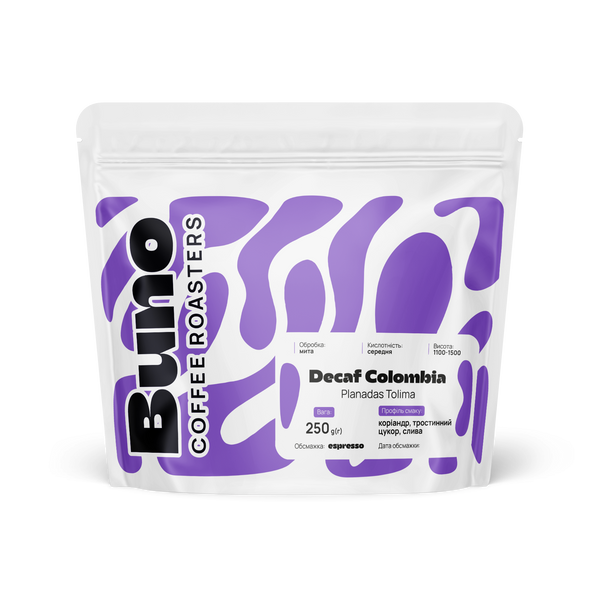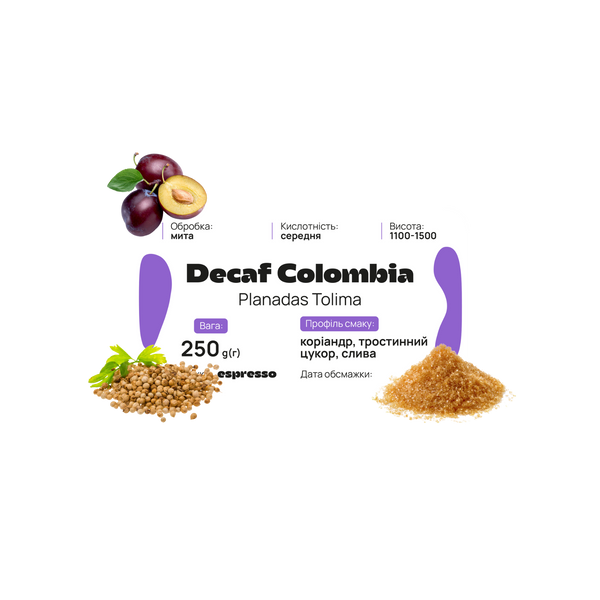|
Quantity
|
Total
|
||
|
|
|||
Decaffeinated Coffee
Decaffeinated coffee is a true lifesaver for those who cannot drink regular coffee for various personal reasons. Modern decaffeination technologies have advanced to the point where decaffeinated coffee tastes just as good as regular coffee.
Colombia Decaf
Colombia Decaf is a delightful coffee with notes of caramel, plum, coriander, and a subtle aftertaste. The caffeine is removed from the beans using a process that involves infusing them with carbon dioxide and extracting under high pressure. This method retains the coffee's flavor characteristics unchanged. This coffee can be brewed using any method - espresso or filter are both great, but caramel notes particularly shine through when brewed in a cezve or a moka pot. Use a temperature around 95 degrees Celsius to bring out the fruity notes of this coffee. Store both ground and whole bean coffee in an airtight container in a dark place away from sunlight.
Features of Coffee Cultivation in Colombia
Colombia is one of the world leaders in Arabica production. The country's equatorial proximity, humid climate, and mineral-rich soil make it ideal for growing high-quality beans. Coffee in Colombia is grown high in the mountains, at elevations above 2000 meters above sea level. In these conditions, due to the significant temperature variations and lower pressure, the berries mature longer, which results in higher concentrations of fruit acids and natural sugars.
Coffee Production in Colombia
Due to its closeness to the equator, Colombia harvests twice a year, allowing farmers to earn more from volume production. Coffee production in Colombia is at a very advanced level. Farms are typically small—up to 3 hectares—but the larger ones are equipped with advanced processing and drying stations. Coffee is picked by hand, requiring a substantial labor force to gather a bountiful harvest.
The New Era of Colombian Coffee
Until recently, the production of naturally processed whole bean coffee was prohibited due to the high moisture and rainfall, which increased the risk of fermentation or mold during natural drying. Lately, this prohibition has been lifted, and the world has seen many unique batches of natural Colombian coffee. Colombian plantations employ a large number of immigrants from neighboring Guatemala and Nicaragua. Colombia has also embraced a culture of experimental coffee fermentations. Typically, clean beans are either sealed in liquor barrels or fermented with cascara (the coffee cherry) and sometimes with special bacterial cultures. This coffee has a distinctive taste with alcoholic notes and tropical fruit flavors.
Socio-Economic Situation in Colombia
Colombia is a developing country facing major challenges like frequent civil wars and armed conflicts, as well as cocaine production. Until 2016, many farmers abandoned their plantations and fled to cities, while criminals used the lands previously planted with coffee to cultivate coca plants. Despite these issues, Colombia has maintained its position as a world leader in the production of high-quality Arabica for many years.



















